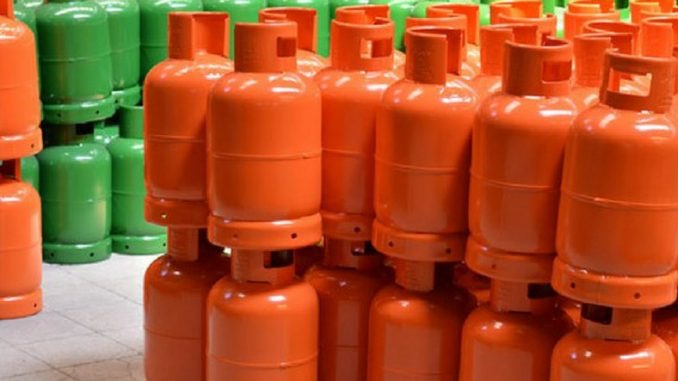The Federal Government of Nigeria has resolved to implement measures to boost the supply and significantly reduce the price of Liquefied Petroleum Gas (LPG), otherwise known as cooking gas.
It will also ensure the domestication and penetration of the LPG towards ensuring accessibility and availability for consumers across the country.
Mr Ekperikpe Ekpo, Minister of State for Petroleum Resources (Gas), made this known at a Stakeholders’ Consultative Meeting on Wednesday in Abuja.
Ekpo said that prioritising the domestication and penetration of the LPG was one of the three priority areas of President Bola Tinubu-led administration.
He identified another area as intensifying efforts to increase upstream gas production to bridge supply and improve strategic economic sectors like Gas to Power, Gas-Based Industries (GBIs), and Gas for Export.
He said it would focus on the completion of major gas midstream infrastructure and projects, including the AKK Gas Pipeline Project, the OB3 Gas Pipeline Project and the ANOH Project.
According to the minister, this will enable flagship projects like the Brass Methanol Project to enhance the efficiency and capacity of the gas sector.
“It is imperative that we work together to unlock more resources to provide gas for power, GBIs, LNG export, and domestic use.
(This will) foster economic growth, ensure energy security and eradicate poverty, a cardinal objective of President Bola Tinubu’s Renewed Hope Agenda.
“Nigeria is positioned as one of the leading gas-rich countries in the world. We have, however, not unlocked the full potential of this valuable resource.
“This underperformance can be attributed to gas flaring, inadequate infrastructure, pricing concerns, policy and regulatory gaps, and limited funding.
“(It also include) environmental concerns, the growing urgency for a smooth energy transition as well as a lack of comprehensive gas development blueprint,’’ he said.
The minister said that the government was committed to developing an adaptable roadmap that reflects collective intelligence.
He said that government would also learn collaboratively and act decisively to create an environment that fosters growth, innovation, and sustainable development.
Amb. Nicholas Ella, Permanent Secretary of the ministry, stated that the challenges and opportunities within the gas sector are vast, ranging from technological advancements to environmental considerations and economic implications.
“It is through open and transparent discussions like this that we can uncover synergies, address concerns, and collectively arrive at solutions that not only meet the needs of the present but also ensure a sustainable and prosperous future.”
Alhaji Abubakar Shettima, National President, Independent Petroleum Marketers Association of Nigeria (IPMAN), expressed readiness to collaborate with the government towards the actualisation of the Compressed Natural Gas (CNG) and LPG use.
“IPMAN has the highest number of retail outlets nationwide for LPG and that of CNG will increase through our full partnership in the gas programmes of the government.
“Though the cost of LPG is a bit higher but when you compare with other sources of energy, LPG is still cheaper than kerosene. There is need to reduce the cost of petroleum products through the use of CNG,’’ he said.
Mr Osagie Okunbo, Chairman, Oil Producers Trade Section (OPTS), said it was looking forward to translate the gas framework on ground into reality in view of the abundant gas resources.
He added that it was being owed 1.3 billion dollars for gas that has been produced and sold in the past.
Okunbo said that this was a key issue in the gas discussion the meeting was having, urging that producers be encouraged through appropriate mechanism.
“The government should ensure that the price set for gas is such that will enable gas production.
“Gas price is due for review in April; we will be making our inputs known to the authority to make sure the price is cost reflective,’’ he said.
The stakeholders’ engagement aimed at harnessing collective wisdom, experiences, and insights of key players in the private sector.
It is expected to produce constructive recommendations to resolve issues and chart the way forward for the industry.




























